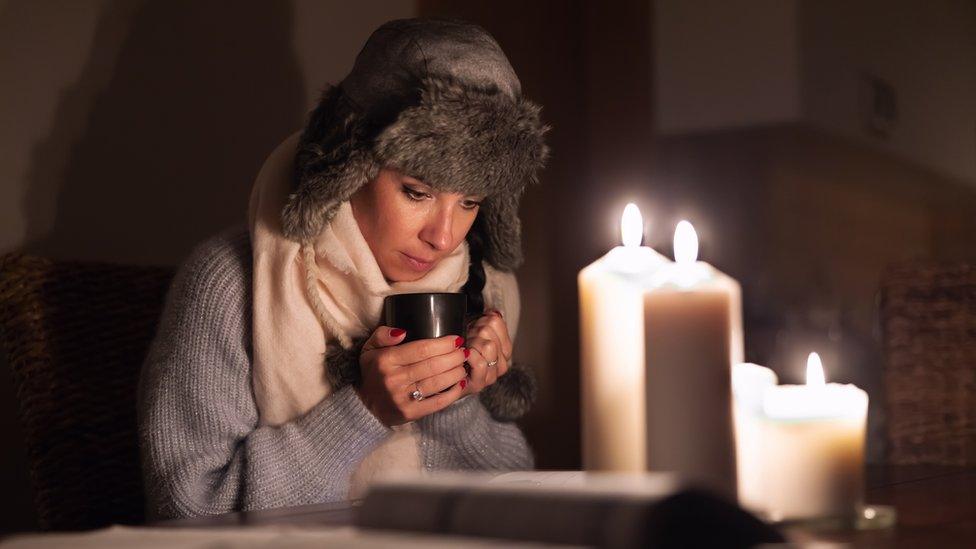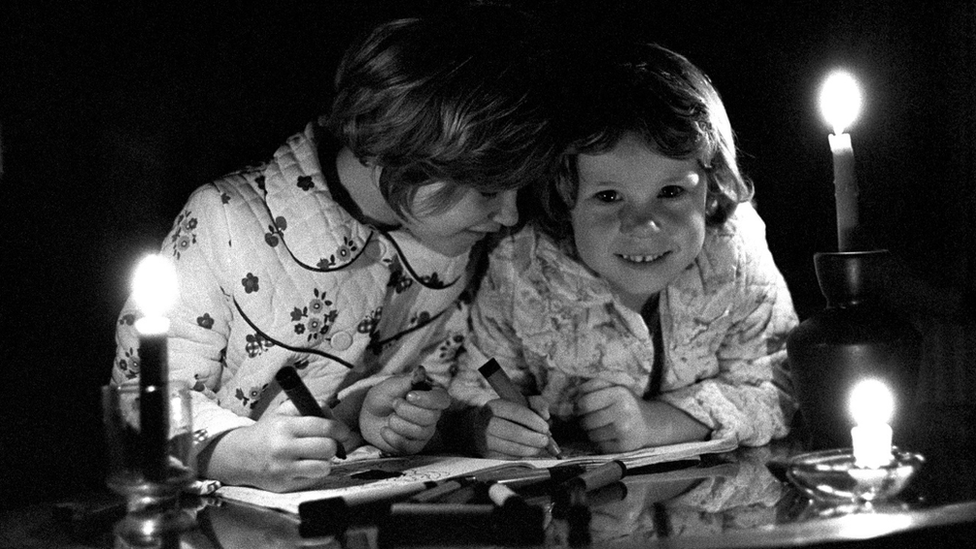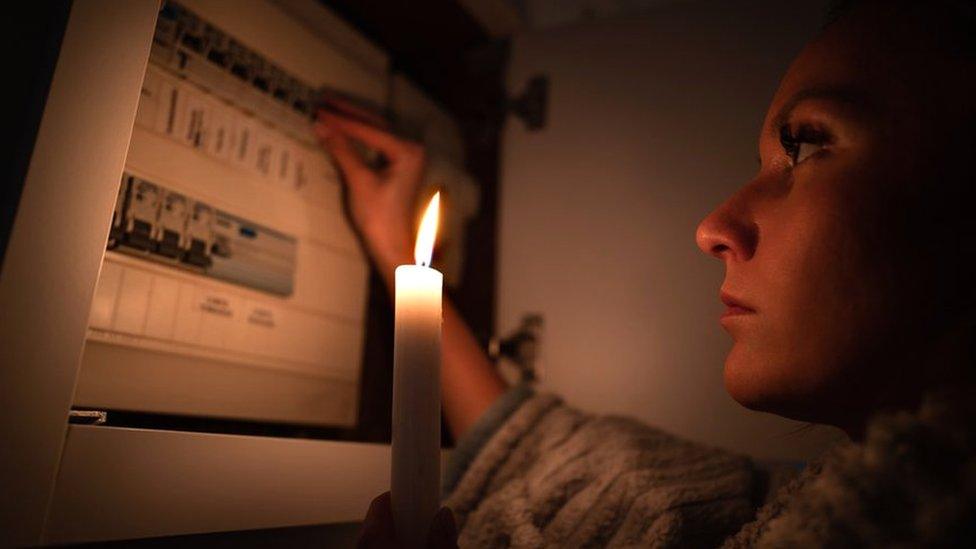Plans drawn up to protect vulnerable in case of blackouts
- Published

East Riding Council is working on blackout plans with the NHS and emergency services
Plans are being drawn up to help vulnerable people in the event of power cuts.
East Riding Council revealed it was working on contingency plans with the NHS and emergency services.
It comes amid warnings a cold winter could see planned, three-hour blackouts should gas and electricity supplies run too low.
The National Grid is understood to have "worst case" plans involving shutting off power to some areas.
No blackouts are due at this stage, reports the Local Democracy Reporting Service.
However, Councillor Victoria Aitken, portfolio holder for children and young people, told the council's Health and Wellbeing Board she had spoken to Northern Powergrid about the possibility of blackouts and how to mitigate against them.
She voiced concerns about what might happen to people, including children, who rely on powered medical equipment.

The last time Britain faced power cuts was in the 1970s
Carol Waudby, of the City Health Care Partnership (CHCP), said it would be able to help in that scenario but warned it could not do it alone in the event of prolonged outages.
She said: "The biggest issue for us is that we've got 154 intermediate care beds, if there's a power outage we couldn't manage that in isolation. There's some things we can do if it's three hours, but if it's 48 or 72 hours we'd need a joined up plan."
Andy Kingdom, the council's public health director, said his emergency planning colleagues, through the Local Resilience Forum, were also talking to Humberside Fire and Rescue Service and Humberside Police.
He added: "There's work going on right down to mapping out which areas would be getting switched off, who is vulnerable in that area and what support we can give them."
Struggling to pay bills
Ronnie Hartley, director of the council's Children and Young People Specialist Services, said her team was also looking at how schools might be affected by blackouts.
She said: "We're looking at how they could impact schools, especially schools which cook food."
The board also heard the NHS had plans to help people who needed electricity for medical reasons but were struggling to pay bills.
Simon Cox, representing the NHS, said people should not feel they had to switch off essential equipment.
He said: "We've heard stories from patients who have been discharged from hospital who are using beds that have to be plugged in who are worried about keeping their electricity on.
"It's important for them to know that people should not feel they have to switch things off."

Follow BBC East Yorkshire and Lincolnshire on Facebook, external, Twitter, external, and Instagram, external. Send your story ideas to yorkslincs.news@bbc.co.uk, external.
Related topics
- Published7 October 2022

- Published1 November 2022

- Published7 October 2022
